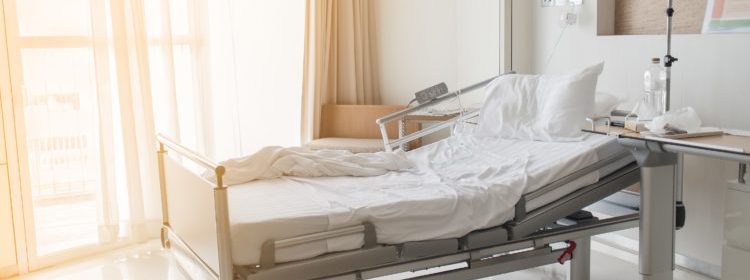Corona-crisis: hospital-in patient numbers, undo due to Corona afraid of? – Naturopathy Naturopathy Specialist Portal

Doctors observe decrease in the number of patients in Emergency
Weeks ago the question came up, why in spite of the Corona-crisis as many hospitals are still empty. Over time, this could have to do with it, that many people with serious injuries or illnesses come for treatment because they are afraid to contract the Virus.
In mid-March, it was decided that all the planned recordings, operations and procedures performed in German hospitals, as far as this is medically reasonable, will be postponed for an indefinite period of time. This is to ensure that there is sufficient capacity for the treatment of Coronavirus diseases (COVID-19) are available. However, many hospitals are under-utilised. In the meantime has been partially logged for clinics even short-time work. Also in Leipzig, emergency room physician observed a decline in the number of patients.
Necessary medical care claim
As the University hospital of Leipzig (UKL) in a message, writes, dominate the Coronavirus SARS-CoV-2 and the lung disease COVID-19 at the moment, the news location in Leipzig and all of Germany.
It is almost forgotten that a lot of people also continues to suffer from other diseases or injury. In the Central emergency Department of the UKL is registered to pay at the time of a decline in the patients. This is consistent with observations of other large emergency rooms in the entire Federal territory.
In case of acute serious health complaints or in case of a medical emergency, the patient should take the necessary medical care is also currently in the claim, appeal, therefore, the Doctors of the UKL.
Concerns are completely unnecessary
“At the Moment we’re still not sure, what the decrease really is,” says Prof. André Gries, Medical Director of the Central emergency Department (ZNA) and the speaker of the Cardiac Arrest center (CAC) on UKL.
“Perhaps it is a consequence of the so-called shutdown, many people are less active and stay over a longer period of time at home.”
There is, however, evidence that some were waiting in the current Corona-the Situation no longer and concerns would present themselves in the case of acute health problems, or to call the rescue service, explains Prof. Gries.
From the point of view of the UKL-emergency physician, these concerns are completely unnecessary: “to continue everyone should seizures in relevant health problems such as strokes, heart attacks, or acute trauma call the emergency medical service or Central emergency visit,” he explains.
Although many of the planned interventions and operations had been cancelled, and the Corona would have led to limitations in clinical practice, were on the £ all of the resources for the emergency care available, emphasizing the physician.
Also, all of the established treatment pathways, for example, in the case of cardiovascular diseases in the framework of the CAC, or in the case of other diseases would be exactly as in the case of injury, to work at any time.
No one should be without fear of Corona on a visit to the doctor
“The risk of infection with the Coronavirus in the hospital is extremely low,” says Gries. “Significantly less favorable it is, when acute medical problems would now be deported for fear of Corona and not the treatment be worse.”
The Arrival of a patient or a patient in the Central emergency admission, but also by the rescue service, will immediately check whether a COVID-19-there was a risk, explains the UKL-expert.
In a positive case, this patient or this Patient would be separated immediately, so that she or he could not come up with other patients or in patients in contact.
“We have taken comprehensive measures of protection, and they work,” says Prof. André Gries. “No one should be without fear on a visit to the doctor.”
The current development in the number of patients in the emergency Department during the Corona-crisis will now be examined in the context of a study. The results should serve to avoid at an early stage to counteract and delay in the necessary emergency medical treatment. (ad)